Books
Browse or search ANU Press' range of books or find out more about the publications' authors and co-publishers. Download the book for free or buy a print-on-demand copy.
Displaying results 41 to 50 of 233.

The Neoliberal State, Recognition and Indigenous Rights »
New paternalism to new imaginings
Edited by: Deirdre Howard-Wagner, Maria Bargh, Isabel Altamirano-Jiménez
Publication date: July 2018
The impact of neoliberal governance on indigenous peoples in liberal settler states may be both enabling and constraining. This book is distinctive in drawing comparisons between three such states—Australia, Canada and New Zealand. In a series of empirically grounded, interpretive micro-studies, it draws out a shared policy coherence, but also exposes idiosyncrasies in the operational dynamics of neoliberal governance both within each state and between them. Read together as a collection, these studies broaden the debate about and the analysis of contemporary government policy.
The individual studies reveal the forms of actually existing neoliberalism that are variegated by historical, geographical and legal contexts and complex state arrangements. At the same time, they present examples of a more nuanced agential, bottom-up indigenous governmentality. Focusing on intense and complex matters of social policy rather than on resource development and land rights, they demonstrate how indigenous actors engage in trying to govern various fields of activity by acting on the conduct and contexts of everyday neoliberal life, and also on the conduct of state and corporate actors.

Indigenous Mobilities »
Across and Beyond the Antipodes
Edited by: Rachel Standfield
Publication date: June 2018
This edited collection focuses on Aboriginal and Māori travel in colonial contexts. Authors in this collection examine the ways that Indigenous people moved and their motivations for doing so. Chapters consider the cultural aspects of travel for Indigenous communities on both sides of the Tasman. Contributors examine Indigenous purposes for mobility, including for community and individual economic wellbeing, to meet other Indigenous or non-Indigenous peoples and experience different cultures, and to gather knowledge or experience, or to escape from colonial intrusion.
‘This volume is the first to take up three challenges in histories of Indigenous mobilities. First, it analyses both mobility and emplacement. Challenging stereotypes of Indigenous people as either fixed or mobile, chapters deconstruct issues with ramifications for contemporary politics and analyses of Indigenous society and of rural and national histories. As such, it is a welcome intervention in a wide range of urgent issues. Second, by examining Indigenous peoples in both Australia and New Zealand, this volume is an innovative step in removing the artificial divisions that have arisen from “national” histories. Third, the collection connects the experiences of colonised Indigenous peoples with those of their colonisers, shifting the long-held stereotypes of Indigenous powerlessness. Chapters then convincingly demonstrate the agency of colonised peoples in shaping the actions and the mobility itself of the colonisers.
While the volume overall is aimed at opening up new research questions, and so invites later and even more innovative work, this volume will stand as an important guide to the directions such future work might take.’
— Heather Goodall, Professor Emerita, UTS

Popular Music, Stars and Stardom »
Publication date: June 2018
A popular fascination with fame and stardom has existed in Western culture since the late eighteenth century; a fascination that, in the twenty‑first century, reaches into almost every facet of public life. The pervasive nature of stardom in modern society demands study from the perspectives of a range of distinct but thematically connected disciplines. The exploration of intersections between broader considerations of stardom and the discourses of popular music studies is the genesis for this volume. The chapters collected here demonstrate the variety of work currently being undertaken in stardom studies by scholars in Australia. The contributions range from biographical considerations of the stars of popular music, contributions to critical discourses of stardom in the industry more broadly, and the various ways in which the use of astronomical metaphors, in both cultural commentary and academic discourse, demonstrate notions of stardom firmly embedded in popular music thought. Not only do these chapters represent a range of perspectives on popular music, stars and stardom, they provide eloquent and innovative contributions to the developing discourse on stardom in popular music.

The Contest for Aboriginal Souls »
European missionary agendas in Australia
Authored by: Regina Ganter
Publication date: May 2018
This book covers the missionary activity in Australia conducted by non-English speaking missionaries from Catholic and Protestant mission societies from its beginnings to the end of the mission era. It looks through the eyes of the missionaries and their helpers, as well as incorporating Indigenous perspectives and offering a balanced assessment of missionary endeavour in Australia, attuned to the controversies that surround mission history. It means neither to condemn nor praise, but rather to understand the various responses of Indigenous communities, the intentions of missionaries, the agendas of the mission societies and the many tensions besetting the mission endeavour. It explores a common commitment to the supernatural and the role of intermediaries like local diplomats and evangelists from the Pacific Islands and Philippines, and emphasises the strong role played by non-English speakers in the transcultural Australian mission effort.
This book is a companion to the website German Missionaries in Australia – A web-directory of intercultural encounters. The web-directory provides detailed accounts of Australian missions staffed with German speakers. The book reads laterally across the different missions and produces a completely different type of knowledge about missions. The book and its accompanying website are based on a decade of research ranging across mission archives with foreign-language sources that have not previously been accessed for a historiography of Australian missions.
‘A remarkable intellectual achievement, compelling reading.’
— Dr Niel Gunson
‘The range of knowledge on display here is very impressive indeed.’
— Professor Peter Monteath
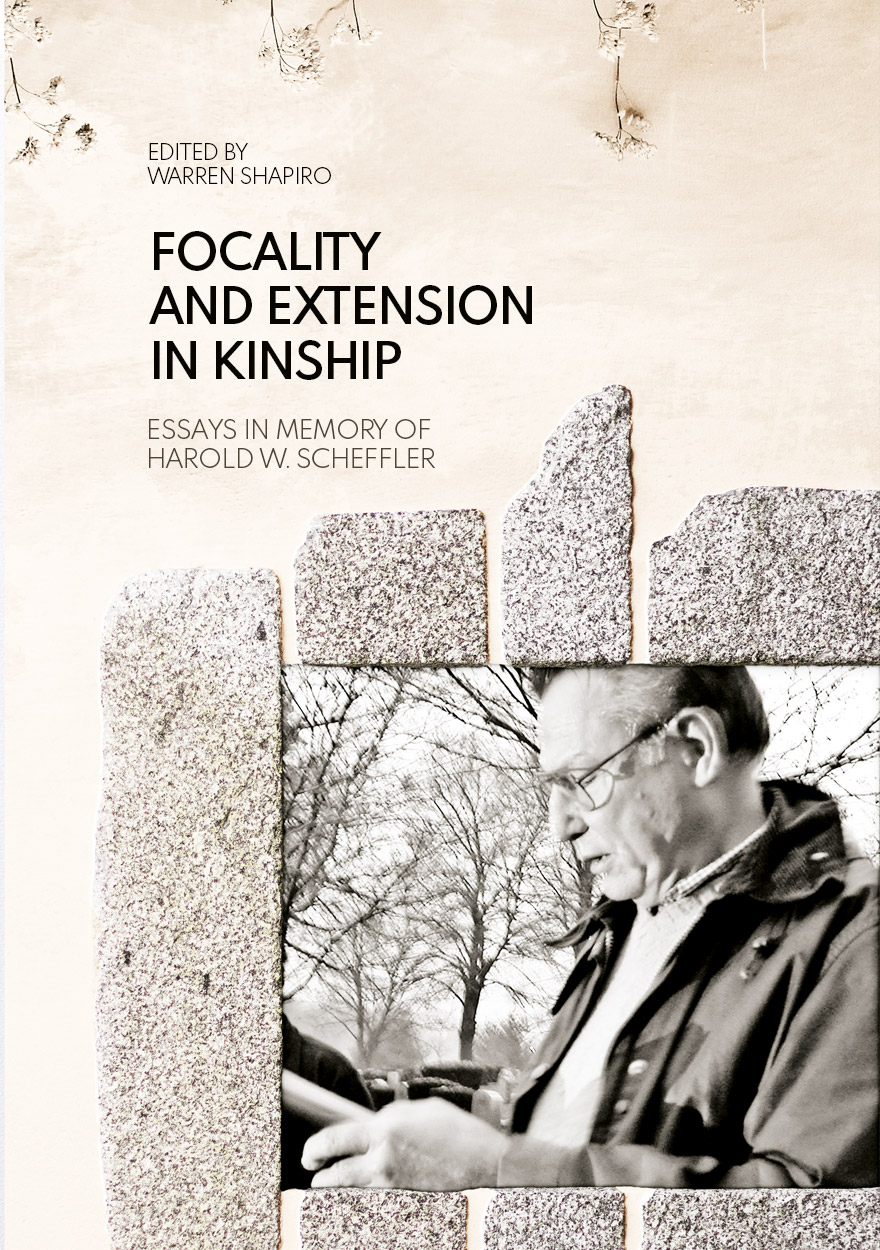
Focality and Extension in Kinship »
Essays in Memory of Harold W. Scheffler
Edited by: Warren Shapiro
Publication date: April 2018
When we think of kinship, we usually think of ties between people based upon blood or marriage. But we also have other ways—nowadays called ‘performative’—of establishing kinship, or hinting at kinship: many Christians have, in addition to parents, godparents; members of a trade union may refer to each other as ‘brother’ or ‘sister’. Similar performative ties are even more common among the so-called ‘tribal’ peoples that anthropologists have studied and, especially in recent years, they have received considerable attention from scholars in this field. However, these scholars tend to argue that performative kinship in the Tribal World is semantically on a par with kinship established through procreation and marriage. Harold Scheffler, long-time Professor of Anthropology at Yale University, has argued, by contrast, that procreative ties are everywhere semantically central, i.e. focal, that they provide bases from which other kinship ties are extended. Most of the essays in this volume illustrate the validity of Scheffler’s position, though two contest it, and one exemplifies the soundness of a similarly universalistic stance in gender behaviour. This book will be of interest to everyone concerned with current controversy in kinship and gender studies, as well as those who would know what anthropologists have to say about human nature.
“The study of kinship once ruled the discipline of anthropology, and Hal Scheffler was one of its magisterial figures. This volumes reminds us why. Scheffler’s powerful analyses of kinship systems often conflicted with the views of his more relativist contemporaries. He cut through the fog of theory to emphasise the human essentials, namely the importance of the social bonds rooted in motherhood and fatherhood. Anthropology in its decades-long retreat from the serious study of kinship has lost a great deal. This volume points the way to a restoration.”
— Peter Wood, National Association of Scholars
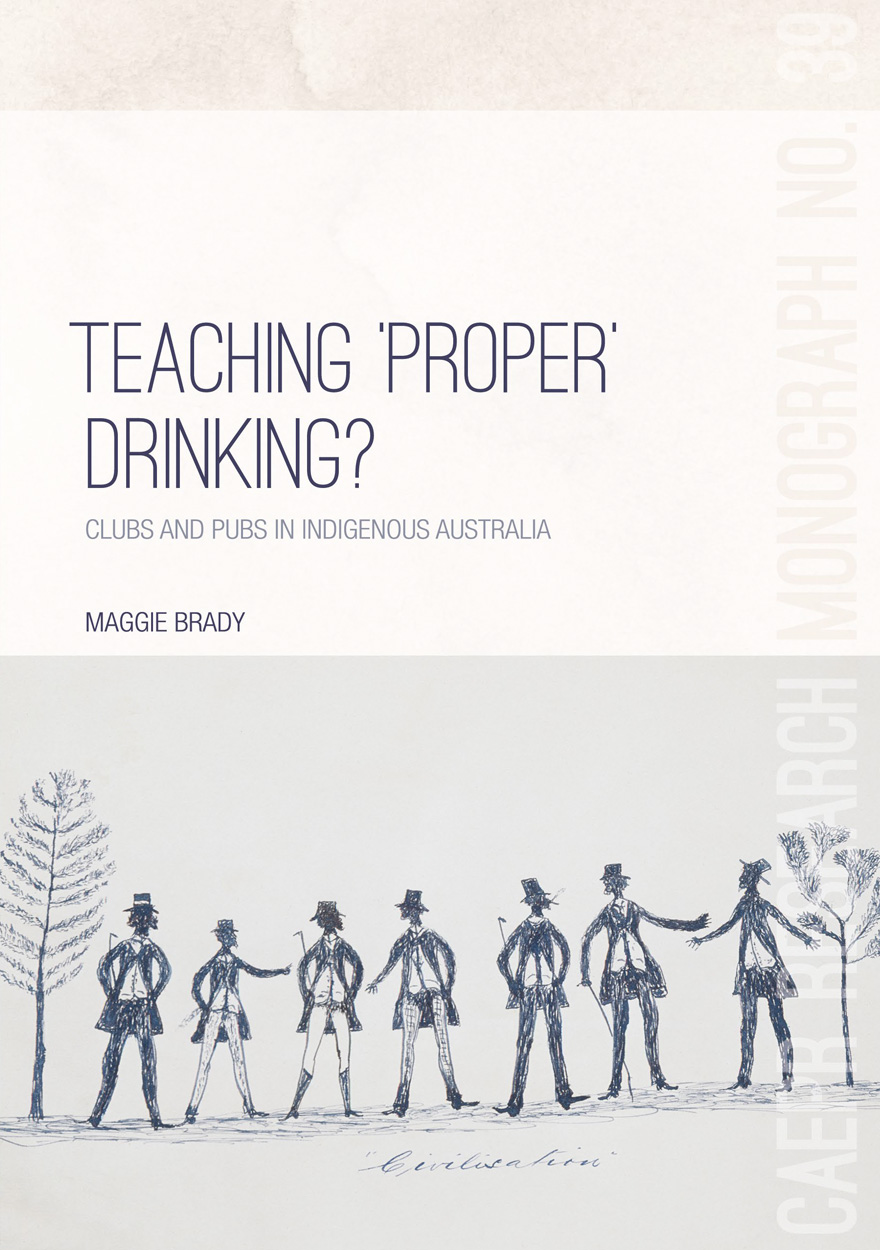
Teaching ‘Proper’ Drinking? »
Clubs and pubs in Indigenous Australia
Authored by: Maggie Brady
Publication date: December 2017
In Teaching ‘Proper’ Drinking?, the author brings together three fields of scholarship: socio-historical studies of alcohol, Australian Indigenous policy history and social enterprise studies. The case studies in the book offer the first detailed surveys of efforts to teach responsible drinking practices to Aboriginal people by installing canteens in remote communities, and of the purchase of public hotels by Indigenous groups in attempts both to control sales of alcohol and to create social enterprises by redistributing profits for the community good. Ethnographies of the hotels are examined through the analytical lens of the Swedish ‘Gothenburg’ system of municipal hotel ownership.
The research reveals that the community governance of such social enterprises is not purely a matter of good administration or compliance with the relevant liquor legislation. Their administration is imbued with the additional challenges posed by political contestation, both within and beyond the communities concerned.
‘The idea that community or government ownership and management of a hotel or other drinking place would be a good way to control drinking and limit harm has been commonplace in many Anglophone and Nordic countries, but has been less recognised in Australia. Maggie Brady’s book brings together the hidden history of such ideas and initiatives in Australia … In an original and wide-ranging set of case studies, Brady shows that success in reducing harm has varied between communities, largely depending on whether motivations to raise revenue or to reduce harm are in control.’
— Professor Robin Room, Director, Centre for Alcohol Policy Research, La Trobe University
In the Media
Read the Alice Spring News article: ‘Proper’ drinking: elusive goal but how hard have we tried?
Awards
Shortlisted – 2019 Chief Minister's Northern Territory History Book Award

Himalayan Dreaming »
Australian mountaineering in the great ranges of Asia, 1922–1990
Authored by: Will Steffen
Publication date: November 2017
How did climbers from the world’s flattest, hottest continent become world-class Himalayan mountaineers, the equal of any elite mountaineer from countries with long climbing traditions and home ranges that make Australia’s highest summit look like a suburban hill? This book tells the story of Australian mountaineering in the great ranges of Asia, from the exploits of a brash, young colonial with an early British Himalayan expedition in the 1920s to the coming of age of Australian climbers in the 1980s. The story goes beyond the two remarkable Australian ascents of Mt Everest in 1984 and 1988 to explore the exploits of Australian climbers in the far-flung corners of the high Himalaya. Above all, the book presents a glimpse into the lives – the successes, failures, tragedies, motivations, fears, conflicts, humor and compassion – themselves to the ultimate limits of survival in the most spectacular and demanding mountain arena of all.
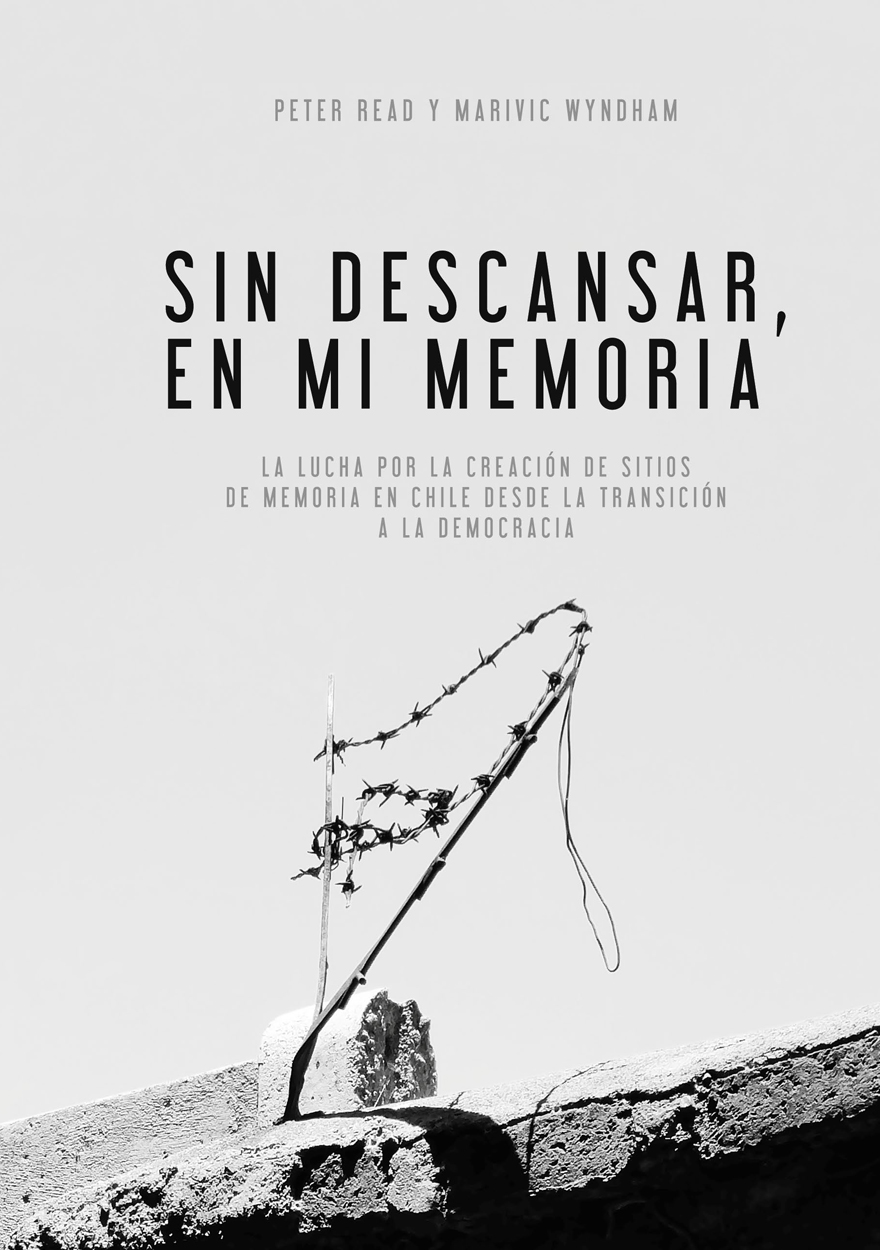
Sin Descansar, En Mi Memoria »
La lucha por la Creación de sitios de memoria en Chile desde la transición a la democracia
Authored by: Peter Read, Marivic Wyndham
Publication date: October 2017
En el once de septiembre de 1973, el Jefe de las Fuerzas Armadas de Chile, Augusto Pinochet, derrocó al gobierno del Partido de la Unidad Popular de Salvador Allende e instaló una dictadura militar. Sin embargo, este no es un libro de partidos e ideologías políticas, pero una historia pública. Se enfoca en los memoriales y conmemoraciones en siete sitios de tortura, exterminio y desaparición en Santiago de Chile. Se entablan debates universales del por qué y cómo los actos de violencia infligidos por un Estado contra sus propios ciudadanos deben ser recordados, y por quiénes.
Los sitios investigados – incluso el nefasto caso del Estadio Nacional – son entre los más simbólicos de más de mil de tales sitios por todo el país.
Este estudio vislumbra la profundidad de los sentimientos que los sobrevivientes y las familias de los detenidos desaparecidos y los ejecutados políticos arrastran en cada uno de estos sitios. Este libro sigue sus luchas para conmemorar a cada uno, y así revela lentamente sus sentimientos: su idealismo, esperanza, coraje, frustración, odio, emoción, resentimiento, tristeza, división y desilusión.
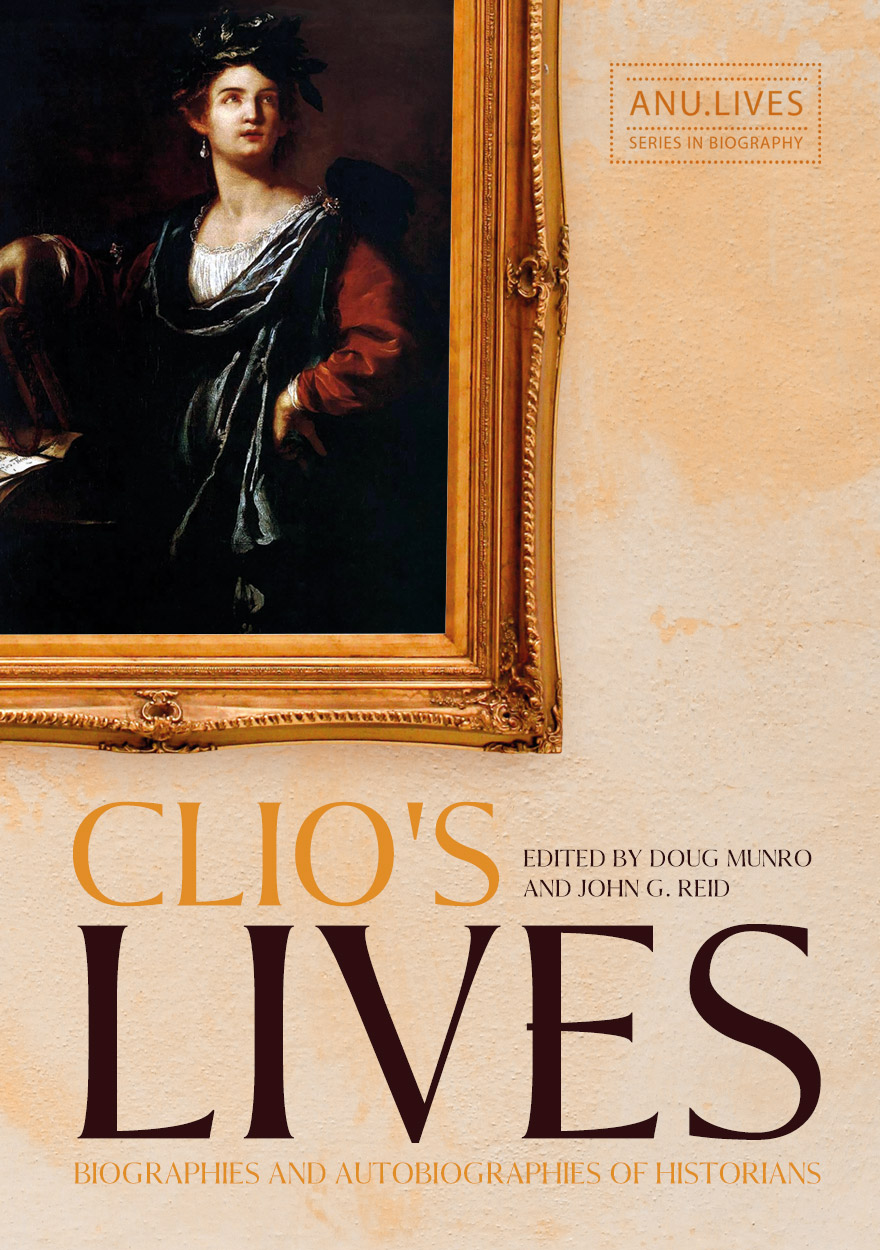
Clio’s Lives »
Biographies and Autobiographies of Historians
Edited by: Doug Munro, John G. Reid
Publication date: October 2017
Including contributions from leading scholars in the field from both Australia and North America, this collection explores diverse approaches to writing the lives of historians and ways of assessing the importance of doing so. Beginning with the writing of autobiographies by historians, the volume then turns to biographical studies, both of historians whose writings were in some sense nation-defining and those who may be regarded as having had a major influence on defining the discipline of history. The final section explores elements of collective biography, linking these to the formation of historical networks. A concluding essay by Barbara Caine offers a critical appraisal of the study of historians’ biographies and autobiographies to date, and maps out likely new directions for future work.
Clio’s Lives is a very good scholarly collection that advances the study of autobiography and biography within the writing of history itself, taking theoretical questions in significant new directions. The contributors are well known and highly respected in the history profession and write with an insight and intellectual energy that will ensure the book has considerable impact. They examine cutting-edge issues about the writing of history at the personal level through autobiography and biography in diverse and innovative ways. Together the writers have provided reflective chapters that will be widely read for their impressive theoretical advances as well as being inspirational for new entrants to the disciplinary area.
— Patricia Grimshaw, University of Melbourne
Clio’s Lives brings together a most interesting and varied cast of contributors. Its chapters contain sophisticated and well-penned ruminations on the uses of biography and autobiography among historians. These are clearly connected with the general themes of the volume. This delightfully mixed bag makes very good reading and, as well, will serve as a substantial contribution to the study of the biography and autobiography.
— Eric Richards, Flinders University
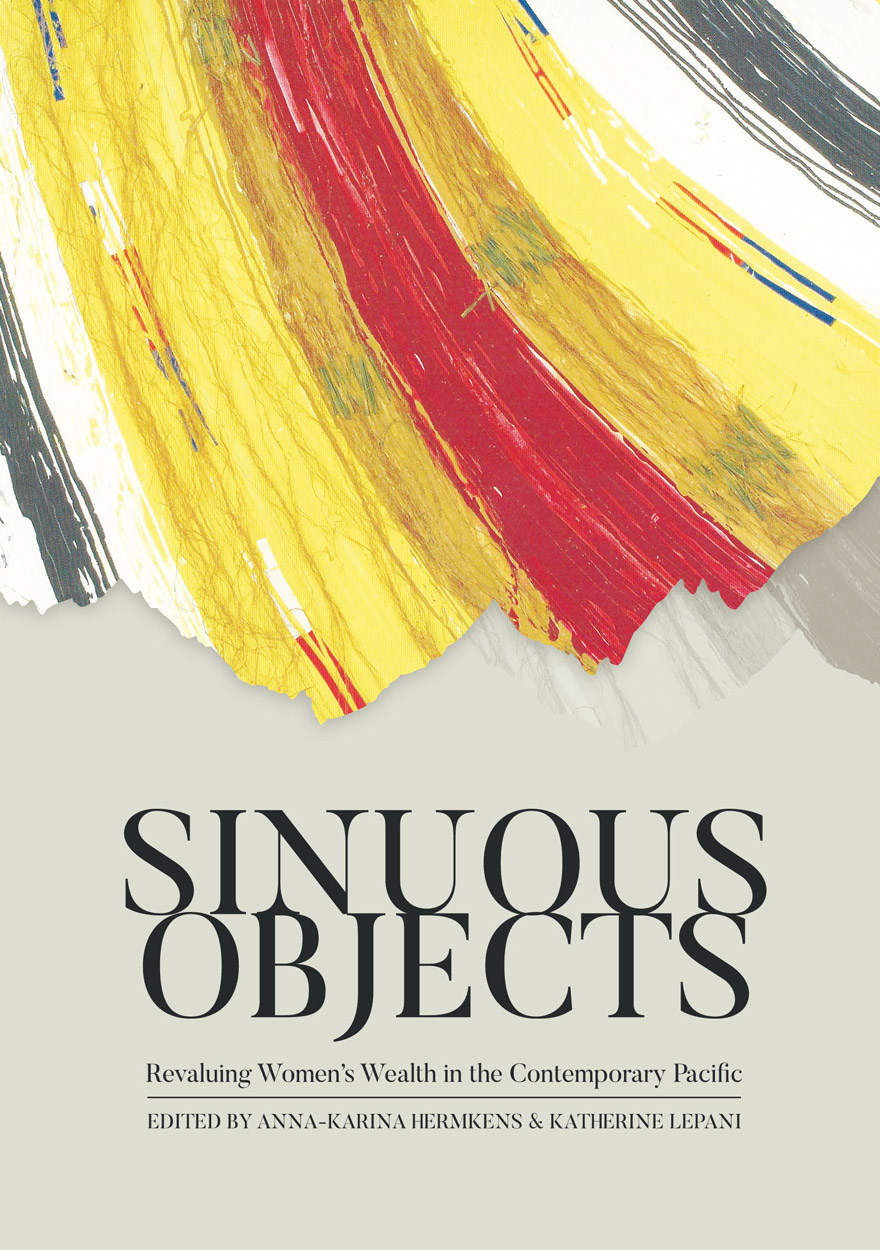
Sinuous Objects »
Revaluing Women’s Wealth in the Contemporary Pacific
Edited by: Anna-Karina Hermkens, Katherine Lepani
Publication date: August 2017
Some 40 years ago, Pacific anthropology was dominated by debates about ‘women’s wealth’. These exchanges were generated by Annette Weiner’s (1976) critical reappraisal of Bronisław Malinowski’s classic work on the Trobriand Islands, and her observations that women’s production of ‘wealth’ (banana leaf bundles and skirts) for elaborate transactions in mortuary rituals occupied a central role in Trobriand matrilineal cosmology and social organisation. This volume brings the debates about women’s wealth back to the fore by critically revisiting and engaging with ideas about gender and materiality, value, relationality and the social life and agency of things. The chapters, interspersed by three poems, evoke the sinuous materiality of the different objects made by women across the Pacific, and the intimate relationship between these objects of value and sensuous, gendered bodies.
In the Epilogue, Professor Margaret Jolly observes how the volume also ‘trace[s] a more abstract sinuosity in the movement of these things through time and place, as they coil through different regimes of value … The eight chapters … trace winding paths across the contemporary Pacific, from the Trobriands in Milne Bay, to Maisin, Wanigela and Korafe in Oro Province, Papua New Guinea, through the islands of Tonga to diasporic Tongan and Cook Islander communities in New Zealand’. This comparative perspective elucidates how women’s wealth is defined, valued and contested in current exchanges, bride-price debates, church settings, development projects and the challenges of living in diaspora. Importantly, this reveals how women themselves preserve the different values and meanings in gift-giving and exchanges, despite processes of commodification that have resulted in the decline or replacement of ‘women’s wealth’.



